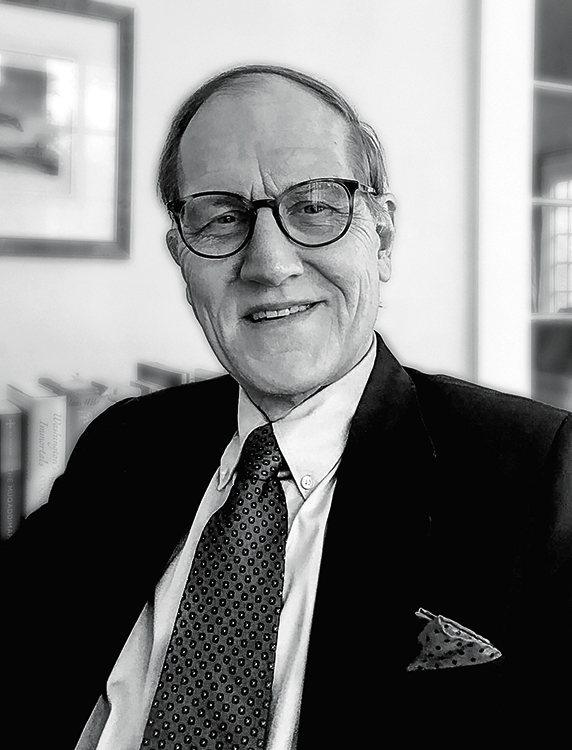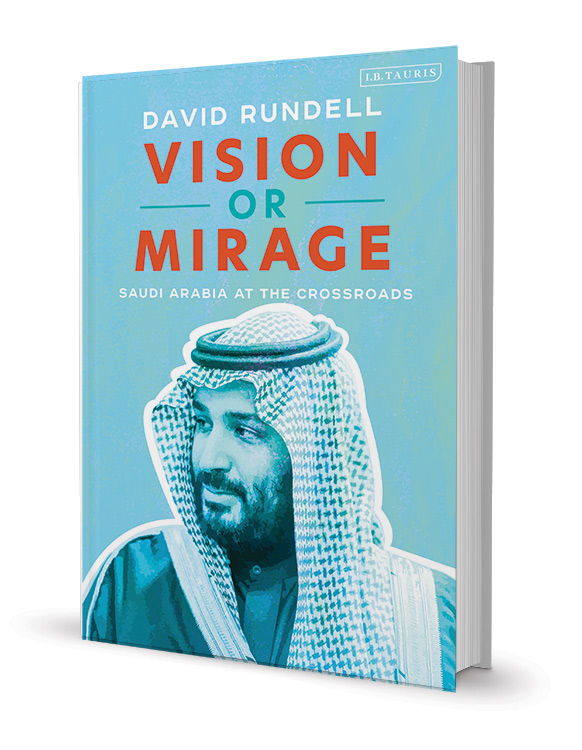
David Rundell ’75 first traveled to Saudi Arabia when he was 25. There was no paved road between the large cities of Jeddah and Riyadh, and Bedouins still roamed the desert. Now, he says, there’s a Burger King on every corner.
As a former American diplomat who spent 15 years of his 30-year career in the kingdom, he’s an expert in more than just physical changes to the country. With this knowledge, he penned Vision or Mirage: Saudi Arabia at the Crossroads (I.B. Tauris, 2020), focusing on the question: Is this new, modern kingdom here to stay?
“I think [the book] serves its purpose, which is to explain a rather unusual place that is changing very rapidly and remains important to the United States. So it behooves us, as a country, to understand this place.”

Rundell studied economics and international relations at Colgate before earning his master’s at Oxford, focusing on Arabic and the modern Middle East. He became interested in pursuing a career that focused on the Arabian peninsula, and he joined the Foreign Service. “I thought, even then, that [Saudi Arabia] was going to be the future, and I was right about that,” he says.
Most diplomats focus on one area of the Foreign Service — economic, political, or commercial — then travel to other countries to hone that specialty. Rundell did the reverse: he chose to specialize in one country and gained experience in all three facets. This deep knowledge, and the connections he’s made along the way, aided him in writing Vision or Mirage.
In the book, Rundell describes a strong, decades-long partnership between the United States and Saudi Arabia, but it took time and effort to foster that political relationship. “That was what we worked on every day, to the exclusion of pretty much everything else,” he says. It was difficult, in particular, to reach a good place after 9/11, he adds. “The Saudi government didn’t have any role to play in 9/11 … [but] there are still people who don’t believe that. The emotion of negativity about Saudi Arabia is still there.” To help repair relations, his team helped make it possible for Saudis to obtain visas so they could go to college in America without interruption. He also helped create the Joint Commission for Critical Infrastructure Protection between the Saudi Ministry of Interior and the U.S. government, which mainly secures the oil industry.
Vision or Mirage also looks at social change in Saudi Arabia, especially since Mohammed bin Salman became crown prince in 2017. Those changes are “both hopeful and worrying,” Rundell says. Gender equality, for one, has fundamentally improved. Women now have the right to drive vehicles, and they don’t need their father’s or husband’s permission to open a bank account or undergo a C-section. Non-gender-specific changes include rock concerts, movie theaters, and sporting events. “The social change is going fast, probably as fast as it can,” Rundell says. These changes have been met with some opposition, leading to “a harsh crackdown on any form of dissent; whether from the liberal left who want more change now or the religious right who believe change has already gone too far,” he adds.
With the changes, the West faces a dilemma. “It cannot ignore the assassination of Jamal Khashoggi, the detention of political activists, or the war in Yemen; yet, it should not allow these events to overshadow the genuine progress taking place,” Rundell says.
But will these changes stick? “The changes in Saudi Arabia have been dramatic,” he says. “They are not a mirage. They are truly happening.”
